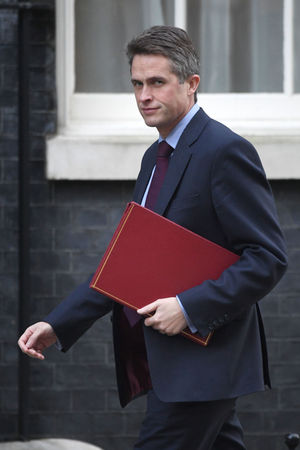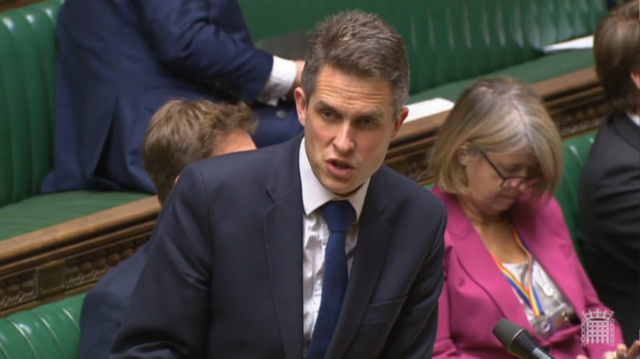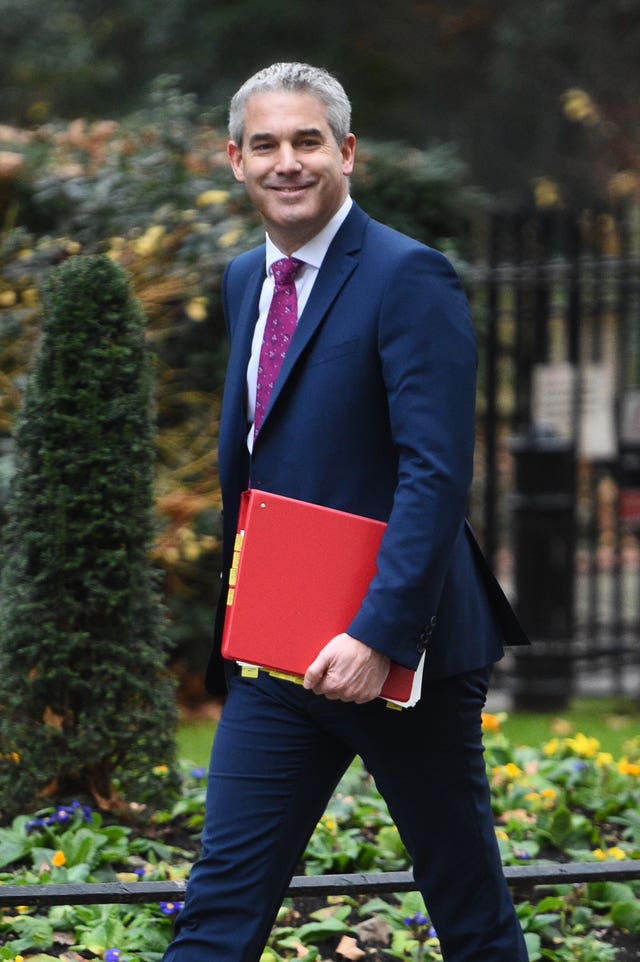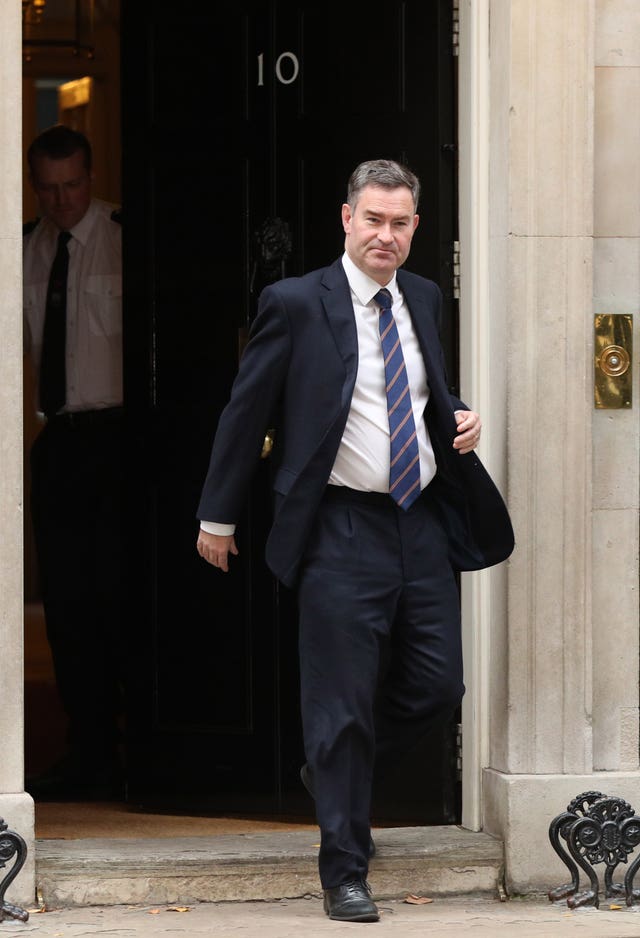Troops held in readiness to deal with disruption from no-deal Brexit
With 101 days to go until the date of the UK’s departure from the EU, Cabinet agreed to ramp up preparations for withdrawal without a deal.

Thousands of troops are to be put on stand-by to help with potential disruption from a no-deal Brexit, it has been revealed.
Defence Secretary Gavin Williamson’s announcement that 3,500 regular soldiers and reservists will be “held at readiness” came as Cabinet agreed to ramp up preparations for the UK crashing out of the European Union without a deal.
With just 101 days to go to the scheduled date of Brexit on March 29, businesses were urged to consider implementing their own contingency plans and households “should also make preparations”.
Mrs May was accused by Liberal Democrat leader Sir Vince Cable of “psychological warfare” in a bid to persuade MPs to support her Brexit deal when it returns to Parliament in January.
And former minister Nick Boles said he would resign the Conservative whip if no-deal Brexit ever became official Government policy, in order to “vote in any way necessary to stop it from happening”.
But Downing Street insisted the Government was simply taking “sensible” steps to prepare for all eventualities, while stressing that delivering a Brexit under the terms of Mrs May’s deal remains its “top priority”.
A 100-page information pack telling businesses of possible changes to the way they trade with EU states will go live online on Friday – with 80,000 emails going out to firms thought likely to be most affected.
And advice to private individuals will be issued over the coming weeks through adverts, websites and direct communications. Areas expected to be covered include bank card payments in the EU and travelling to the continent with pets.
Asked whether families should feel able to go ahead with plans to travel to Europe for the Easter holidays, the Prime Minister’s official spokesman said: “I’m not aware of any reason they shouldn’t do that.”

Around £2 billion has already been allocated for spending by Whitehall departments for Brexit preparations, and Chancellor Philip Hammond announced on Tuesday evening how a further £2 billion will be shared out.
The extra funding for 2019/20 will be focused on priority areas including borders, trade and security.
Twenty-five Government departments will receive additional money, with the Home Office set to receive almost one quarter of the sum – £480 million – to increase Border Force capability with “hundreds of new officers”, and to help it prepare the EU Settlement Scheme.
The Department for Environment, Food and Rural Affairs (Defra) will be given £410 million, HM Revenue and Customs £375 million, the Department for Business, Energy and Industrial Strategy (Beis) £190 million and the Department for International Trade £128 million.
A total of 320 “workstreams” have been identified by Whitehall departments, with each thought to involve a number of action plans. Civil servants will continue to work on preparations during the Christmas period.
Labour Brexit spokeswoman Jenny Chapman said: “It is testament to the Prime Minister’s failure in these negotiations that the Government is now spending billions of pounds of taxpayers’ money to prepare for a no-deal Brexit that is rejected by Parliament and many of those sat around the Cabinet table.”
Mr Williamson told the House of Commons that no formal request has yet come in from Government departments to make use of the 3,500 troops being “held at readiness”.
Downing Street said that these numbers were in addition to the forces normally kept on stand-by by the Ministry of Defence in case of civil contingencies, such as during the 2012 Olympics.
Mrs May’s spokesman said the Government continued to believe that Brexit under the terms of the deal struck by Mrs May with Brussels remains “the most likely scenario”.
But he added: “We will now set in motion the remaining elements of our no-deal plans.
“Cabinet also agreed to recommend to businesses and ensure they are similarly prepared, enacting their own no-deal plans as they judge necessary.
“Citizens should also prepare in line with the technical notices issued in the summer and in line with further more detailed advice that will now be issued over coming weeks.”

Brexit Secretary Steve Barclay warned that unless MPs back Mrs May’s deal in January, the default option will be for the UK to leave without any exit arrangement in place.
“Parliament needs to back the deal because the consequence of not doing so is we risk the default of no-deal, and a responsible Government must prepare for that eventuality,” said Mr Barclay.
Repeating his party’s call for a “People’s Vote” second referendum on Brexit, Sir Vince said: “The decision to ramp up the no-deal pressure is psychological warfare. The Conservative Government are attempting to scare MPs, businesses and the public with the threat of a no-deal.”
Ministers at the weekly Cabinet session at 10 Downing Street choose full implementation of no-deal plans over two other options on the table – to continue with the current policy of enacting plans when it became necessary on a case-by-case basis or to scale back no-deal preparations.
Work and Pensions Secretary Amber Rudd said that ramping up the preparations did not mean a no-deal outcome, telling colleagues: “Just because you put a seatbelt on doesn’t mean that you should crash the car.”
Arguing that Britain will have a positive post-Brexit future if it gets a deal, she urged other ministers to “put politics aside” and “put country before politics” by working to build a consensus across the Commons.
Justice Secretary David Gauke was scathing about the prospect of a “managed no-deal” Brexit floated by some ministers, under which arrangements would be made with Brussels to limit the impact of severing ties without an agreement.
“The responsibility of Cabinet ministers is not to propagate unicorns but to slay them,” he told colleagues.

Brexit-backing Commons Leader Andrea Leadsom was critical of proposals from ministers such as Ms Rudd and Greg Clark for an “indicative vote” of MPs to choose from a range of options on the way forward.
Mr Barclay dismissed proposals for a second referendum or a “managed no-deal”, saying: “There are a number of scenarios being floated in Government without, I think, people really engaging on the consequences.”
In a direct plea to the UK’s company bosses, Mr Barclay said that preparing for no-deal needed to be “much more of a priority for businesses up and down the country”.





